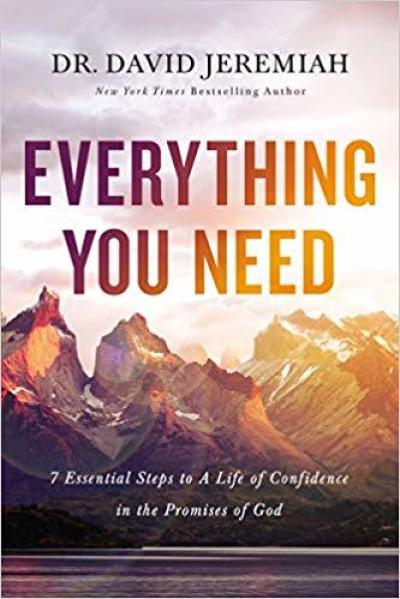David Jeremiah warns modern church is entertainment-driven social organization afraid of controversy

Many U.S. churches today have “forgotten” their purpose, becoming entertainment-driven social organizations eager to blend in with secular culture instead of focusing on biblical discipleship, Pastor David Jeremiah warned.
“The Church is coming under attack; it’s forgotten what the Church is supposed to be,” Jeremiah, founder of Turning Point Radio and Television Ministries, told The Christian Post. “We’re not an entertainment service; we’re not here to see how close we can get to what the world does. But there’s so much of the world in the Church and vice versa that we can’t tell a difference. We have to hold to the truth. We have to get nourished. If it’s not happening, you’re a social organization and not a church.”
Jeremiah, who also serves as senior pastor of Shadow Mountain Community Church in El Cajon, California, explained that amid a nationwide decline in church attendance, far too many churches have become “obsessed” with remaining relevant.
“There’s an incredible motivation on the part of everyone to be successful, and a lot of times people program their churches to see how many people will sit in the pews on Sunday,” he said. “There’s nothing wrong with getting people there, as long as you share the Gospel. But there’s no glory in just a number.”
“Don’t worship at the attendance altar,” Jeremiah advised. “A lot of good things happen in churches when there aren't huge numbers but the pastor has prepared a good message and there’s worship. We get off on this thing that we have to be bigger than the guy down the street and how to get more people in the building. When you’re focused on that, you’ll never preach anything that’s controversial and you’ll always be trying to figure out how to get more people to come.”
The New York Times best-selling author pointed out that ironically, churches that focus on entertainment and fail to present the whole Gospel are actually driving millennials and Generation Z away. He cited research from Barna Group and the Cornerstone Knowledge Network which found that 67 percent of millennials prefer a “classic” church over a “trendy” one.
“Here in California, we see interest on the part of millennials and younger for the Bible and for truth,” the pastor said. “Most of the time, we see statistics about how people are leaving the Church, but in many respects, young people are demanding more truth, more teaching, and less entertainment. They’re not interested in shallow expressions of religion.”
He told CP that many Christians feel uncertain when it comes to living each day as followers of Christ — even though God equips all believers with everything they need to walk confidently as members of His kingdom. This, he said, is often a failure on the part of church leadership.
“Christians have two major markers in their lives: When they become Christians, and when they go to Heaven. But most Christians don’t know what to do in between those two markers, and that’s because churches don’t teach them,” Jeremiah said. “The whole idea that God expects us to build character in our lives is a foreign thing to so many people because it hasn’t been taught and explained from our pulpits.”
The pastor is gearing up for the release of his latest book, Everything You Need: 7 Essential Steps to A Life of Confidence in the Promises of God. In it, he unpacks 2 Peter 1, outlining the seven essential steps to live a life of confidence in the promises of God.
“2 Peter 1 says God has given us everything we need for a godly life; not ‘some things’ — everything,” Jeremiah said. “I see people running around trying to find the things they supposedly need as believers, and here is God telling us, ‘I’ve already given you everything you need.’”

In Romans, God outlines the character qualities He wants His people to grow and develop: virtue, knowledge, self-control, perseverance, godliness, brotherly kindness and love.
“What I’ve tried to do is take each of these characteristics and not only explain them but give practical ways readers can use them,” Jeremiah said. “I encourage readers to take these precious promises from God and memorize them, keeping them in your spiritual hard drive. Then verbalize them. When we share those truths with others, it’ll help them and embolden us, deepening our commitment to the Scriptures.”
“Get a journal, and when you find Scriptures that speak to your life, write them down and build your spiritual inventory so that when you face issues, you are equipped with the promises of God,” he continued.
Jeremiah warned that Christians “shouldn’t be ignorant of Satan’s strategies” — and one of his greatest lies is that it’s fine to “just float” through life.
“Paul writes in Philippians that we are to ‘work out your salvation with fear and trembling,’ but in talking to many Christians, it’s not something they seem to comprehend,” the pastor said. “On the other hand, Satan tells us that it’s all well and good to work on our salvation, but when we don’t do it well or mess up, he swoops in and says, ‘see, I told you it can’t be done.’ But when you mess up, you don’t give up. You keep growing.”
In an era of uncertainty, Jeremiah said he hopes his book encourages readers to live a life of confidence in the promises of God and take ownership of their salvation.
"I’ve been through two rounds of cancer, and one thing I’ve learned through that is that God truly is all He promises to be,” he shared. “And wherever I go, one of the things we talk about is how we’re all living under pressures today. But those can be mitigated when we tap into the power God gives us, downloaded into our lives through the Bible.”
“We need to be memorizing them and practicing them. When we do that, we get the benefit of the promises of God that He so clearly lays out for us in His word.”





























